We often think of spiritual awakening and enlightenment entirely out of the scope of science. In the past, the scientific community always relegated the supposed spiritual awakening experience to the realm of mysticism. However, scientists have recently proven they can correlate changes in the brain to spiritual awakening and enlightenment experiences during meditation. This evidence is about to unsettle the secular scientific mainstream, and the implications may just revolutionize our scientific understanding of the mind.
Meditation
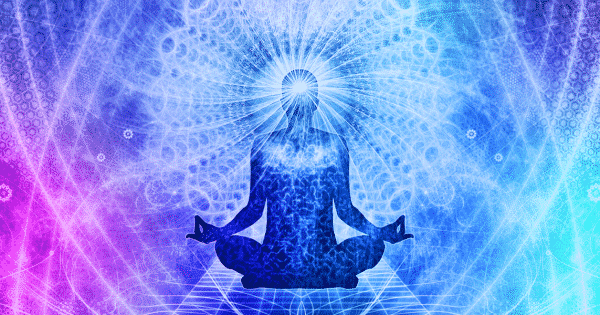
What happens when we quiet our mental chatter and go inward? What happens when we meditate, entering into a state of inner stillness? Why do some people experience intense ecstatic, blissful feelings during meditation? Can we scientifically prove what is happening? Yes, we can, and Dr. Andrew Newberg has validated it through functional magnetic resonance (fMRI) brain scans. He and Mark Waldman outline their research in their groundbreaking book How Enlightenment Changes Your Brain: The New Science of Transformation.
What is Enlightenment?
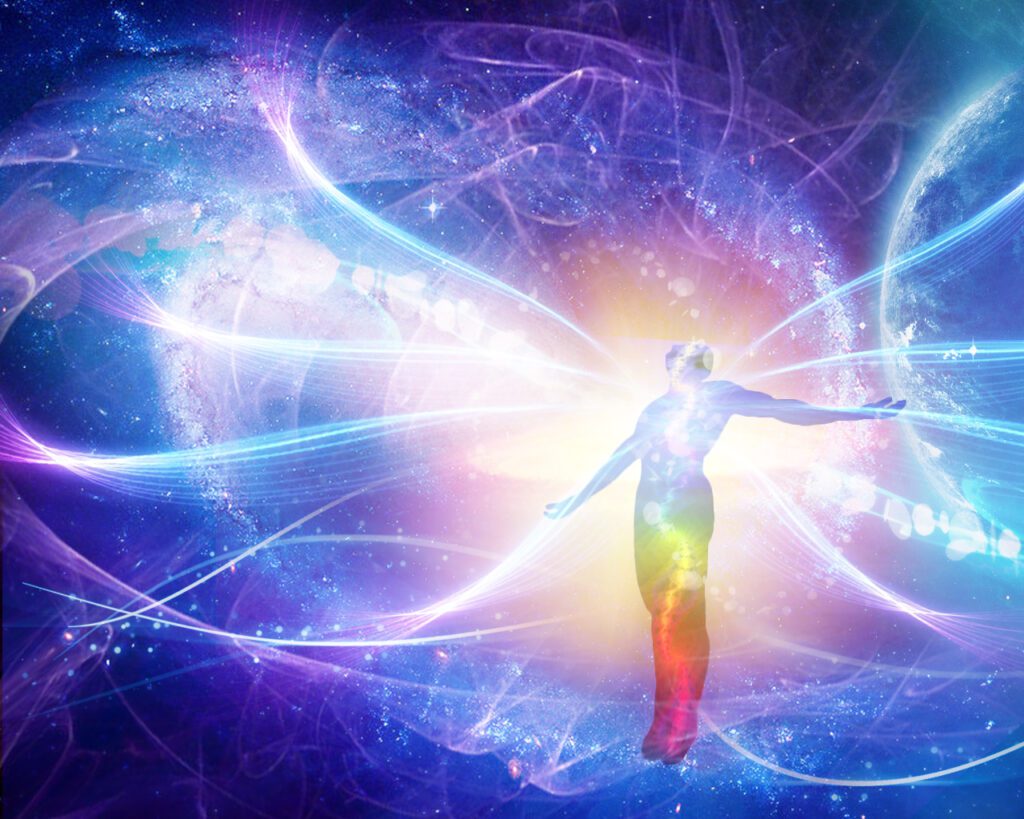
What is enlightenment anyway, and how can we find our own path to enlightenment? Enlightenment is an intense experience that transcends the self and connects one to the universe in a profound and meaningful way. You gain a new perspective that we are all connected, having a sense of oneness with everyone and everything. It is a transformational experience.
The enlightenment experience is different from religion, which often includes dogma, religious texts, and institutions. The emphasis of religion is placed on faith and following laws, commandments, and doctrines.
A national study of college students reveals that 80% say spirituality is essential. It’s not the religious doctrine that intrigues them, but the experience of feeling more fully alive and connected to others and the universe. Whether they know it or not, they too are seeking enlightenment.
Westerners often associate enlightenment exclusively with Eastern religions, not realizing that there are powerful Jewish, Christian, and Muslim meditations that can profoundly deepen one’s connection to God. Non-religious people may also shy away from the term “God,” not realizing that enlightenment can also be a secular experience.
What Does a Spiritual Awakening Feel Like?

Spiritual awakening or enlightenment is a feeling of inner peace, bliss, and gratitude. People often have a new passion and insight into the meaning of life. It is a transcendent shift in consciousness and self-realization, and a feeling of selflessness. All of your senses become heightened, and your sixth sense may open up, expanding psychic ability.
However, the experience is profoundly individual and subjective. It is often difficult to define, leading many people to different conclusions.
Scientific Proof of the Enlightenment Experience
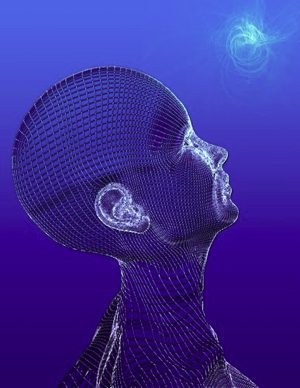
Dr. Andrew Newberg has found a neurobiological mechanism behind the spiritual experience. He has spent his life investigating what happens to your brain during spiritual experiences. His investigations pioneered an entirely new field of neurology called neurotheology. He is also a leading researcher in the field of medical brain imaging (fMRI). Newberg correlates biological brain-scan data with survey responses to explore two kinds of enlightenment experiences. These fMRI brain scans show definite correlations between consciousness and brain function. Newberg proposes a spectrum of enlightenment ranging from little “e” to big “E” experiences.
- “Small e” enlightenment is what Newberg has coined the first kind of enlightenment experiences. It is a “Eureka” moment of breakthrough insight about one’s self and the world. It sheds light on our ignorance. “Small e” enlightenment prepares us for the “Big E” enlightenment experience.
- “Big E” enlightenment is the kind of permanently and radically life-changing realization that can relieve emotional pain and bring peace and happiness. It is a permanent shift in awareness.
“A ‘big E’ enlightenment moment is intense and is remembered for the entire lifetime of the person. It changes the direction of your life and the very essence of your being and changes everything you know about the nature of life itself. They have a feeling of unity, connectedness, oneness.” — Andrew Newberg, M.D. Neurotheologist and bestselling author of many books, including How Enlightenment Changes Your Brain: The New Science of Transformation
The “big E” enlightenment is typically associated with a permanent shift of perception, awareness, and knowledge.
“For some people, the separation between ‘God’ and one’s self completely dissolves. For others, they feel a sense of absolute oneness with life, nature, or the universe. And for nearly everyone, the experience often feels more real than anything else in the world; truth has been discovered, ‘God’ has been touched, and insight has been gained. Are these ‘little e’ or ‘big E’ experiences? From a scientific perspective, we cannot say because it is the individual’s subjective assessment—or the opinion of others—that dictates what ‘size’ of enlightenment has taken place.” — Andrew Newberg, M.D.
Five Core Elements of the Enlightenment Experience
Dr. Andrew Newberg has been conducting ongoing experiments into the experience of enlightenment since the early 1990s. This survey has well over 2,000 respondents describing their most intense enlightenment experiences while meditating and undergoing a brain scan.
This research is attempting to uncover the intersection between the brain and religious and spiritual experiences. In this work, also sometimes referred to as “neurotheology,” Newberg shows the different parts of brain functions directly correlate with religious and spiritual experiences. His initial research included fMRIs to study Buddhist meditators and Franciscan nuns in prayer. He has continued to study religious and spiritual phenomena, including topics related to forgiveness, meditation, prayer, spiritual development, morality, and belief.
Newberg correlated fMRI brain scans with the study respondents’ descriptions of when they experienced a feeling of enlightenment or spiritual awakening during meditation. These scans showed increased blood flow and the firing of neurons in different parts of their brains. Newberg identified five core elements of the enlightenment experience.
Intensity
The first core element of the enlightenment experience is an overwhelming feeling of intensity.
“I was traveling down an infinite roller coaster-like waves of pure white ecstatic light. The ecstasy was overwhelming, and the light was infinitely more real than anything I had ever experienced.” — 43-year-old male study respondent.
The limbic area of the brain is the area of the brain that controls emotion. When something intense happens, this area will appear to fire up, turning red due to a rush of blood flow.
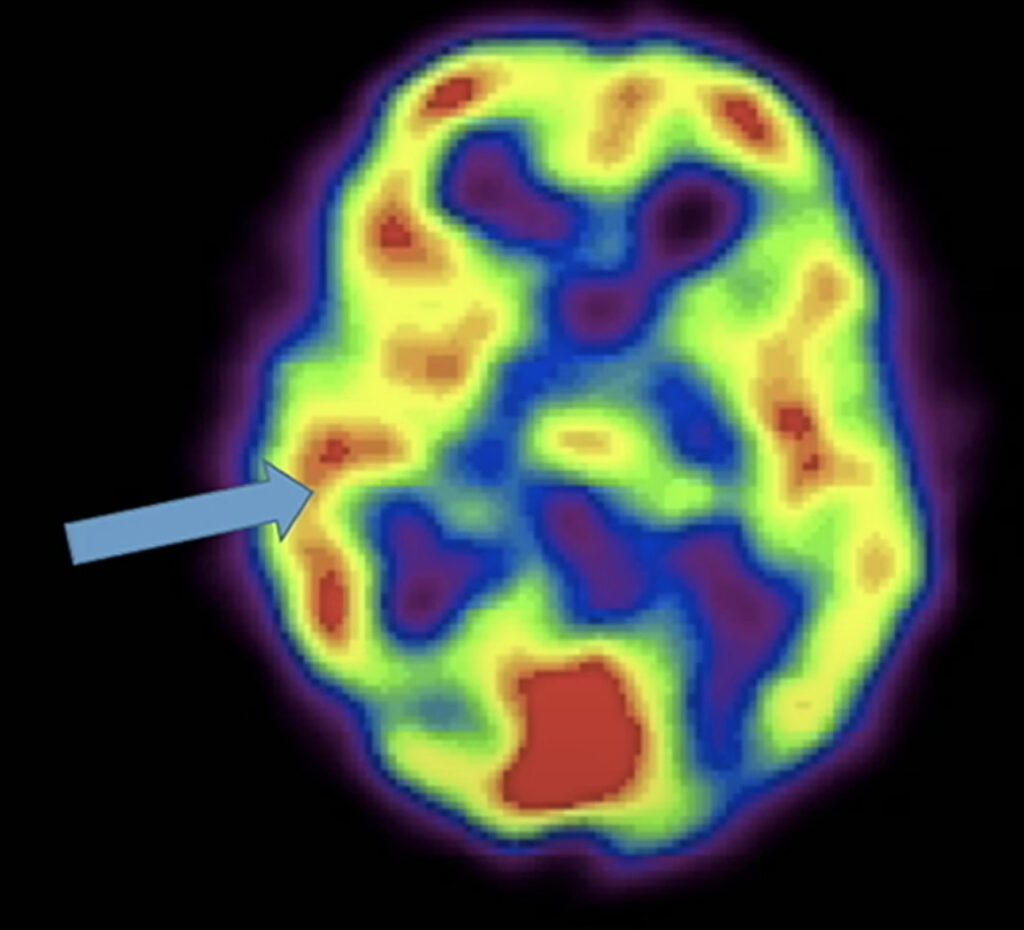
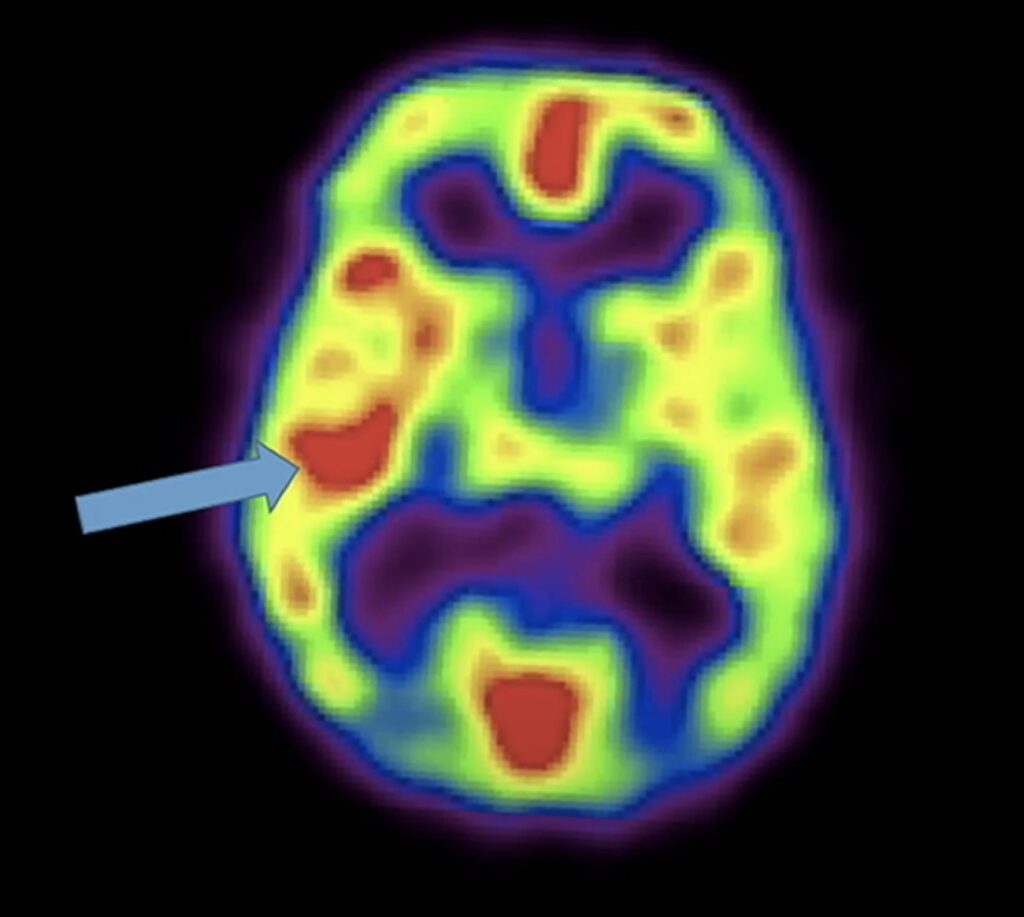
Clarity
The next core element is described by some people as a feeling of clarity.
“Everything in life seemed to click. I had this clarity, and it was as if I was looking at life from the inside out.” — 37-year-old female scientist study respondent.
The brain scans of respondents that described this feeling of clarity showed one side of the thalamus lighting up and the other side going dark.
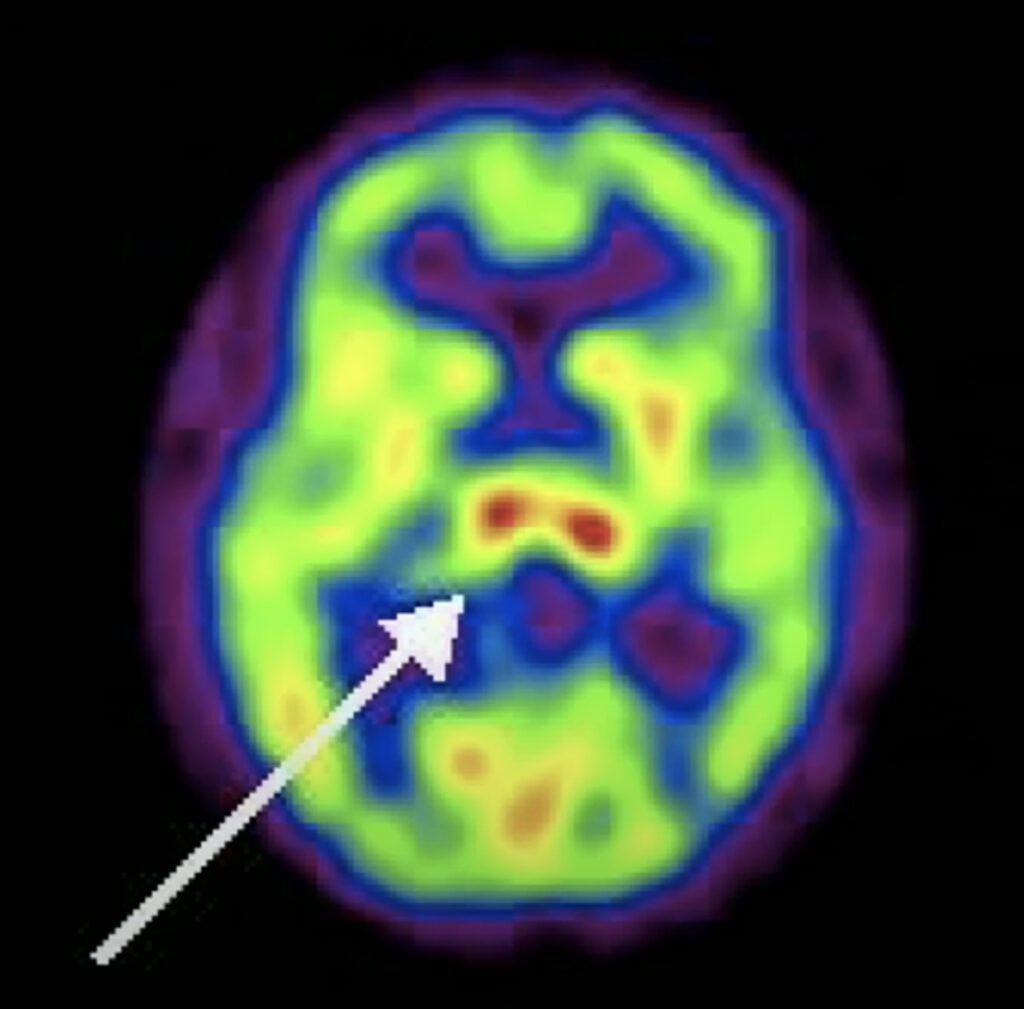
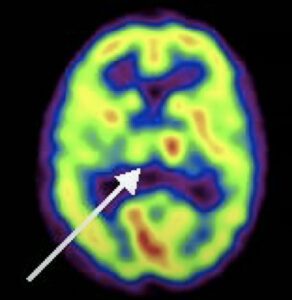
The thalamus is the center of the brain that takes our sensory information and constructs our view of reality.
Surrender
The third core element of these experiences is surrender.
“I surrender my past, my future, any conception of myself, and any conception of spirituality…” — 55-year-old agnostic male study respondent.
Right behind your forehead is your frontal lobe. When you are concentrating, your frontal lobe turns on. The frontal lobe is the seat of the will. It’s what helps you make things happen. When the respondents felt a sense of surrender, the red area in their frontal lobe kind of melted away.
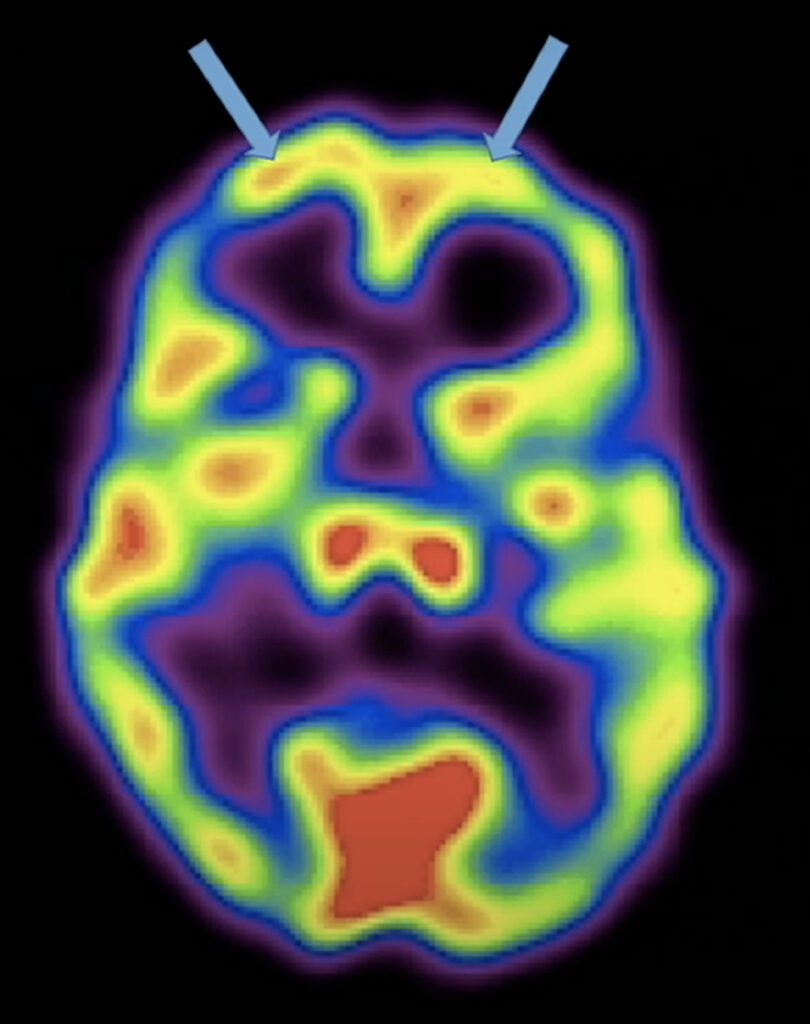
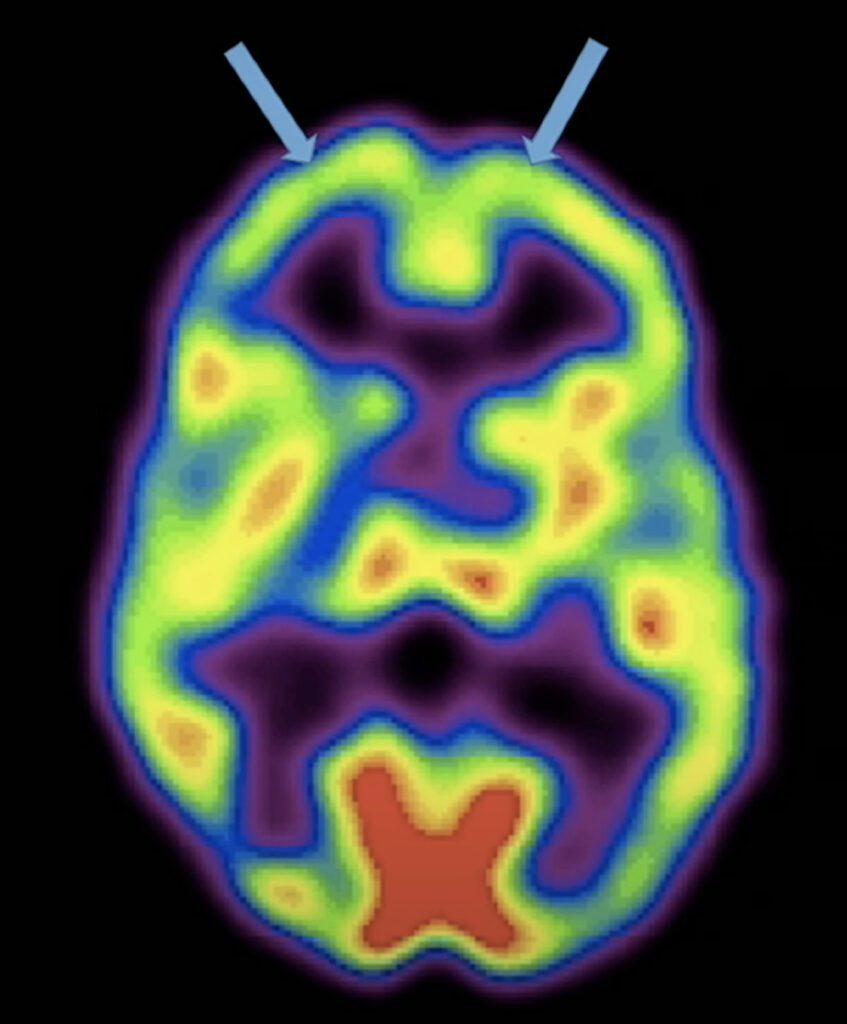
Oneness
The fourth element is described as a feeling of oneness, unity, or connectedness.
“I felt an energetic merging and being at One with the most powerful Creative Force in and beyond all universes.” — 65-year-old Jewish female study respondent.
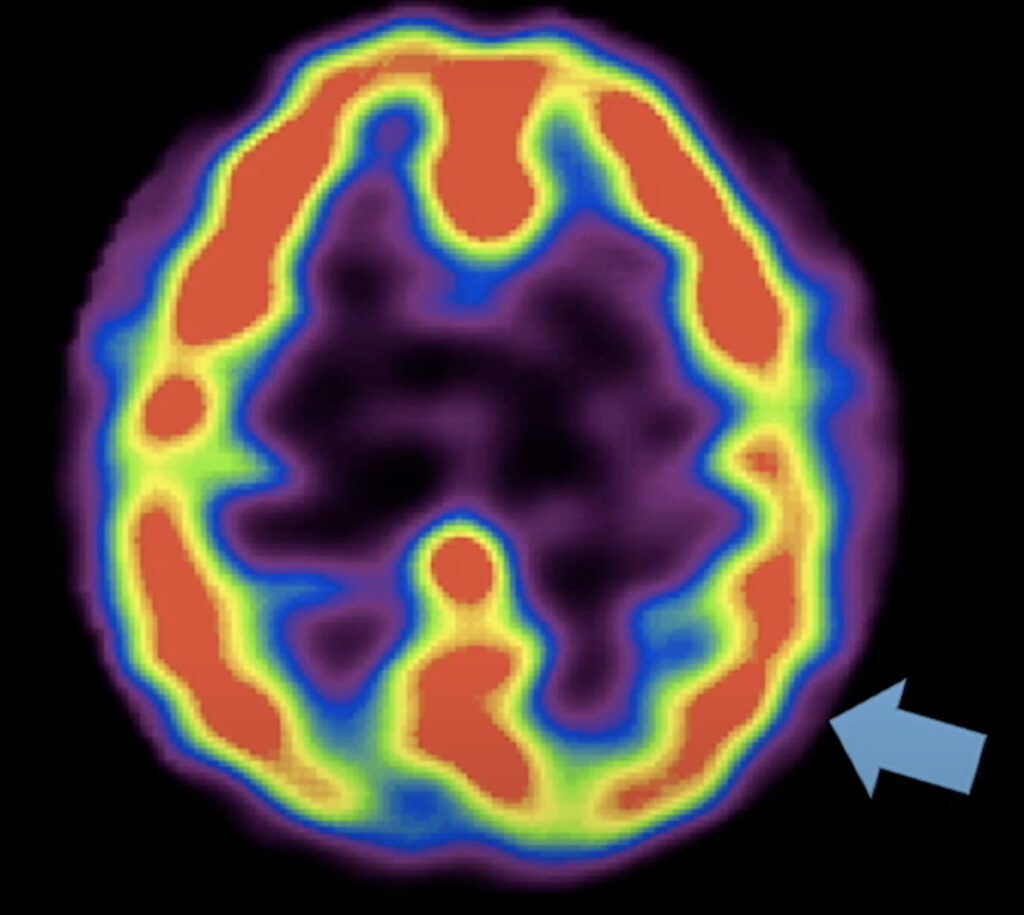
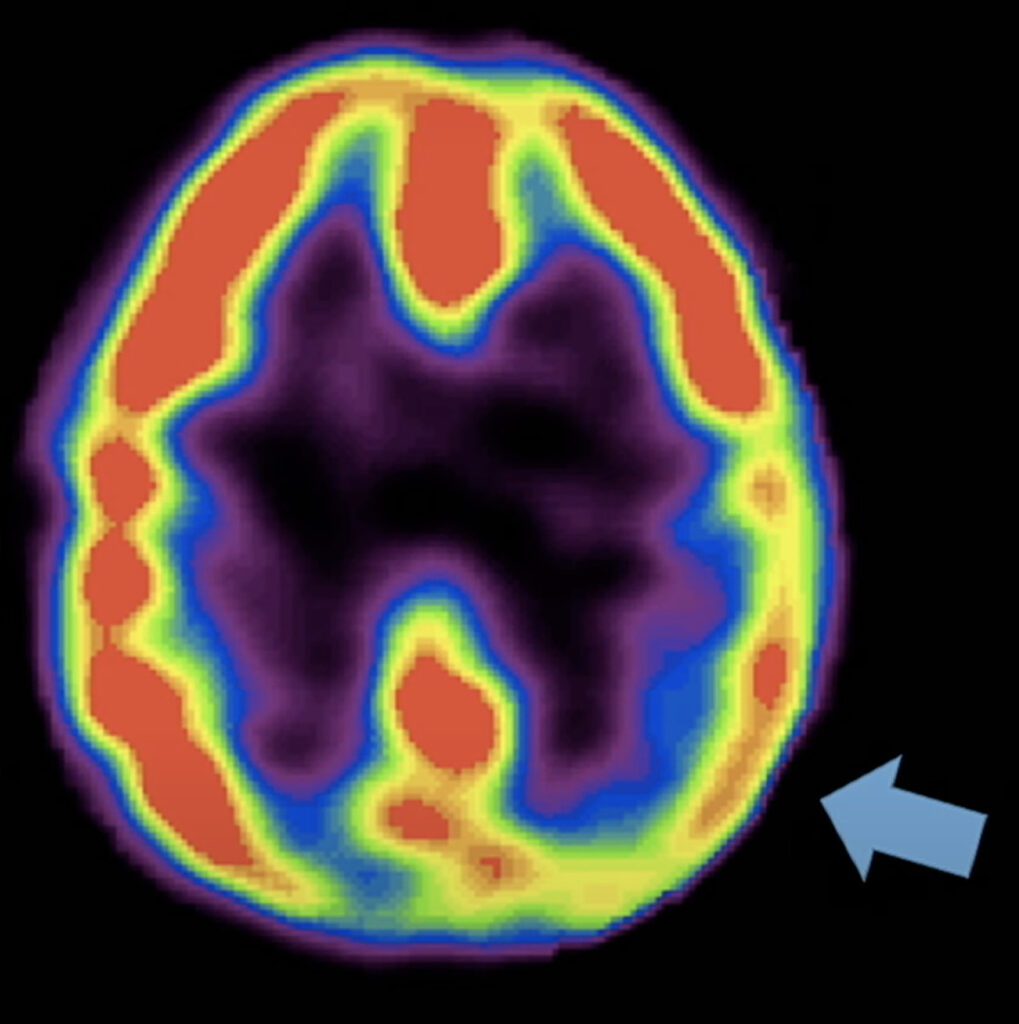
The brain scans of respondents that described this feeling of unity showed their parietal lobe area light up. The parietal lobe takes all of our sensory information and constructs a sense of self and our relation to the world. When you experience a profound sense of oneness and unity with the universe, the parietal lobe dims. The more it dims, the more the sense of self goes away, and the stronger the feeling of unity and oneness takes over.
The person feels as if her own self is dissolving. There is no “I”—just the totality of a singular awareness or experience. In some cases, the experience felt more like a sense of Divine connectedness with God, and a connection to all living beings and reality itself in the other.
It doesn’t appear to matter what a person’s religious or cultural background might be. We all have the neurological ability to feel this powerful sense of connectedness and unity associated with big “E” Enlightenment.
Permanent Change
The last core element of these brain changes turned out to be permanent changes; almost a rewiring occurred. Respondents of the study said these experiences changed everything about them. It changes who they are, their sense of relationships, the meaning of life, and they gain a new understanding of their religious and spiritual selves — almost all universally for the better.
These experiences transform your life totally and permanently, and we can see exactly how this happens in the brain.
“The survey respondents came from an expansive diversity across many demographics. Some were rich, and some were poor, and our survey captured people from many ethnicities. Most of the respondents were American, but 15% lived in other parts of the world. There were equal numbers of women and men, with ages ranging from 18 to 82, and although half the respondents were Christians only 18% of all the narratives mentioned God, and less than 4% mentioned Jesus.” There were many Jewish, Muslim, Hindu, and Buddhist participants. There was also a sizeable atheist contingent—about 25%. Men’s experiences were focused more on the world, the universe, and consciousness, while women focused more on God, love, relationships, and children.” — Andrew Newberg; Mark Waldman, How Enlightenment Changes Your Brain: The New Science of Transformation
Can Anyone Achieve Enlightenment?
“I think one of the big take-home messages from this research is that enlightenment can happen to anyone. It is not reserved for only the Buddhas of the world.” — quote from The Mystical Mind; Why God Won’t Go Away; and How God Changes Your Brain by Andrew Newberg, M.D. (2002).
Newberg goes on to say, “the ability to experience enlightenment, big or small, appears to be “wired” into our brain and consciousness. If we can learn to access this function, I believe that everyone would find immense benefits, not just to oneself, but to society as well.” This article is part of a three-part series on The Science of Enlightenment. Discover more about enlightenment in the companion article, Is the World an Illusion Created by our Consciousness?.

